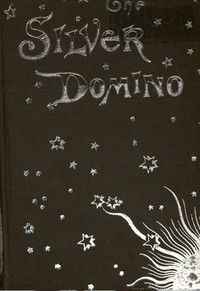| Author |
Corelli, Marie, 1855-1924 |
| Title |
The Silver Domino; Or, Side Whispers, Social and Literary
|
| Note |
Reading ease score: 66.7 (8th & 9th grade). Neither easy nor difficult to read.
|
| Contents |
Openeth discourse -- Soliloquiseth on little manners -- Pronounceth on lesser morals -- Of savages and skeletons -- How names are superior to persons -- Converseth with Lord Salisbury -- Chatteth with the Grand Old Man [William Ewart Gladstone] -- Of the true journalist and his creed -- Of writers in grooves -- Of the social elephant -- The story of a South African dream [Olive Schreiner] -- Questioneth concerning the slough of despond -- Describeth the pious publisher -- Of certain great poets [Tennyson and Swinburne] -- Of more poets -- To a mighty genius [Rudyard Kipling] -- Concerning a great fraternity -- Eulogiseth Andrew [Andrew Lang]-- Byron loquitur -- Maketh exit.
|
| Credits |
E-text prepared by Tim Lindell, Martin Pettit, and the Online Distributed Proofreading Team (http://www.pgdp.net) from page images digitized by the Google Books Library Project (https://books.google.com) and generously made available by HathiTrust Digital Library (https://www.hathitrust.org/)
|
| Summary |
"The Silver Domino; Or, Side Whispers, Social and Literary" by Marie Corelli is a work of literary satire written in the late 19th century. This text blends social critique with humorous observations about its contemporaneous societal norms and figures, particularly focusing on the hypocrisies within literature and politics. The narrator engages in a candid reflection of the social landscape, parodying well-known personalities and commenting on the pretentiousness prevalent within elite circles. The opening of the work introduces a masked narrator who enters a lively social gathering, observing the chaotic behaviors of attendees with a mix of amusement and disdain. Through witty soliloquies, the narrator reveals a disdain for the superficiality and moral failures of both the upper classes and the press. He questions the concept of friendships and enmities, hints at the absurdities of the established societal norms, and expresses a desire to critique the era's duplicitous nature while masked as a mere observer. This sets the stage for an exploration of themes such as identity, truth, and the often laughable yet profound nature of human behavior. (This is an automatically generated summary.)
|
| Language |
English |
| LoC Class |
PR: Language and Literatures: English literature
|
| Subject |
Literature -- Criticism and interpretation
|
| Subject |
Satire
|
| Subject |
English essays -- 19th century
|
| Category |
Text |
| EBook-No. |
63446 |
| Release Date |
Oct 12, 2020 |
| Copyright Status |
Public domain in the USA. |
| Downloads |
48 downloads in the last 30 days. |
|
Project Gutenberg eBooks are always free!
|

